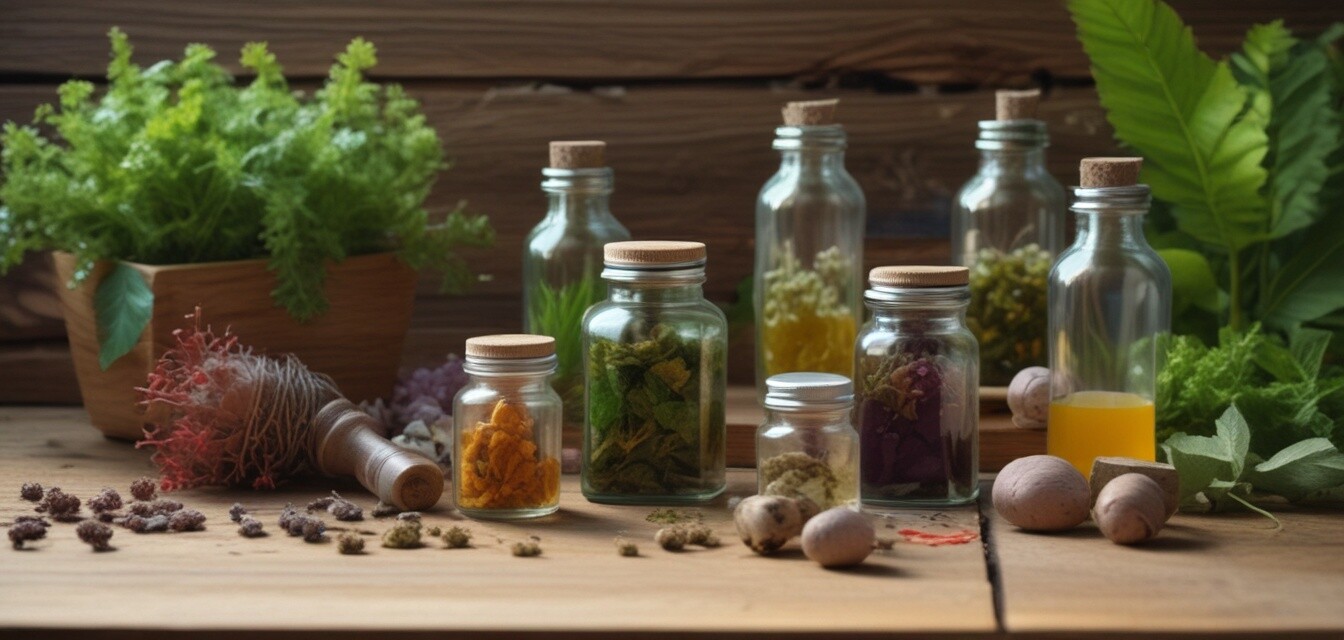
Herbal Supplements to Support Mental Health
Key Takeaways
- Herbal supplements can play a role in promoting mental well-being.
- It’s essential to look for ethically sourced and sustainably produced options.
- Common herbal supplements include ashwagandha, rhodiola, and ginkgo biloba.
- Consult healthcare professionals before incorporating new supplements into your routine.
- Our Buying Guides help simplify your supplement choices.
In today's fast-paced world, maintaining mental health is more crucial than ever. Many individuals are turning to natural solutions, such as herbal supplements, to support their mental well-being and cognitive function. This article will explore popular herbal supplements, their potential benefits, and what you should consider when incorporating them into your daily routine.
Understanding herbal supplements
Herbal supplements are dietary products formulated from plants, traditionally used in various cultures for their health benefits. Unlike pharmaceuticals, they often come with fewer side effects, making them an appealing option for many. Here are some popular herbal supplements known for their potential impact on mental health:
Common herbal supplements for mental health
| Herb | Potential Benefits | Common Usage |
|---|---|---|
| Ashwagandha | May help reduce stress and anxiety. | Capsules or powder in smoothies. |
| Rhodiola Rosea | Can enhance mood and alleviate fatigue. | Capsules or tea. |
| Ginkgo Biloba | Promotes cognitive function and memory. | Tablets or liquid extracts. |
| St. John's Wort | Commonly used for mood support. | Tablets or tinctures. |
| Chamomile | May help with relaxation and sleep. | Tea or capsules. |
The importance of quality
When selecting herbal supplements, it is crucial to choose products that are ethically sourced and sustainably produced. Here are a few tips to ensure you make the right choice:
Beginners Section: Tips for Choosing Herbal Supplements
- Look for products with clear labeling and ingredient sourcing.
- Choose supplements from reputable brands that prioritize quality.
- Check for third-party testing to validate potency and purity.
- Avoid products claiming miraculous results, as these may be misleading.
- Consult with a healthcare professional regarding your choices.
How to incorporate herbal supplements into your routine
When starting with herbal supplements, gradual integration is key. Here are some methods for incorporating them effectively:
- Start with low doses to gauge your tolerance.
- Mix herbal powders into smoothies, juices, or meals.
- Take encapsulated forms with water before meals.
- Maintain a consistent time of day for supplementation.
- Monitor your body's responses and adjust as necessary.
Safety considerations
While many herbal supplements are generally considered safe, it is essential to be cautious. Here are some safety tips:
- Consult a healthcare provider, especially if you're on medications.
- Avoid taking multiple herbs at the same time without professional advice.
- Be aware of possible side effects and interactions.
- Consider any underlying health conditions before starting.
Conclusion
Herbal supplements can be a helpful addition to your arsenal for maintaining mental health and cognitive function. By understanding the available options and their properties, you can make informed decisions that align with your values. Remember to prioritize ethically sourced and sustainably produced supplements to support not only your health but also the well-being of our planet. For more detailed insights, check out our Buying Guides on ethical supplements!
Pros
- Natural and often fewer side effects compared to pharmaceuticals.
- Support from ancient traditions in various cultures.
- Accessible in various forms for convenience.
Cons
- Effects may vary between individuals.
- Not all supplements are adequately regulated.
- Potential interactions with other medications.